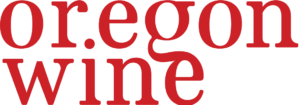Regenerative Working Landscapes: Addressing Future Challenges from the Ground Up
Join a lively conversation about tapping the power of one of our chief assets in the climate struggle: the soil. The panel will discuss the role of farming in adapting to climate change: how vineyards and working lands can contribute to the recovery of resilient landscapes in the face of increasing climatic instability, how mycorrhizal networks regulate nutrient and energy flows, and how those networks are affected by farming practices. The group will also share practical experience on implementing practices on-farm to build soil, increase organic matter and improve the overall health of the landscape on your own property.
View the Session Recording
Browse the Session Presentations
Speaker Bios
Dr. Paul Schreiner is a research plant physiologist at the USDA-ARS Horticultural Crops Research Laboratory in Corvallis and conducts research on root and nutrient physiology of grapevines, including the role of arbuscular mycorrhizal fungi (AMF). Current research goals are to: 1) characterize nutrient requirements of grapevines based on physiological performance and fruit and wine quality attributes; 2) understand how management practices influence root and AMF development, diversity of AMF in roots, and vine performance; and 3) understand how other soil organisms alter root and AMF functions in vineyards. Paul received a B.S. in biochemistry in 1985 and a Ph.D. in plant physiology in 1992, both from Penn State University. Paul has worked on mycorrhizal fungi since 1988 and on grapevine physiology since 1999. He has published 50+ peer-reviewed research papers, and 40+ other publications.
Dan Rinke’s winegrowing career began with a B.S. in viticulture with a minor in plant science from Fresno State University. After school, he worked as the assistant winemaker at Domaine Alfred and then became viticulturist at Rhys Vineyards. In 2007, Dan took the position as winegrower (vineyard manager/winemaker) at Johan Vineyards, an 85-acre certified Organic/Biodynamic, dry farmed and minimally tilled vineyard and winery in the Willamette Valley. He views making wine through the lens of an organic farmer and treats his cellar philosophy like his farming approach; all fermentations are uninoculated with minimal additions or interventions.
In 2011, Dan and his wife Kim Hamblin started Art+Science Cider+Wine on their property, Roshambo ArtFarm, a 50-acre farm that has hay fields, pastures, an annual music festival and a 15-acre diversified, no-till, Biodynamic, dry farmed, regenerative orchard. Dan also consults for a few vineyards, orchards, wineries and cideries with interests in Organic/Biodynamic farming and low intervention wine and cider production.
Mimi Casteel grew up on her family’s vineyard, Bethel Heights. Growing up working in the vineyard and winery, Mimi gained such an appreciation for the industry that she promptly left home after high school. Armed with a B.A. in history and classics from Tulane University, Mimi spent the next year working in various national forests across the West. Her adventures fueled her passion for studying botany, forestry, and ecology. Mimi earned her M.S. from Oregon State University in forest science and spent the next several years working as a botanist and ecologist for the Forest Service, living in the backcountry. She could never get past the longing for the vineyard and working with the vines. Mimi returned to Bethel Heights in 2005. In 2016 Mimi left Bethel Heights to grow and make wine at her home vineyard and living laboratory, Hope Well.
Abby Rose is a physicist-farmer building ecology, profitability and beauty on farms around the world, backed by simple apps and a podcast. She believes healthy soils are the key to a resilient farming future.
About 10 years ago her family started farming at vidacycle in Chile. It was through learning to be a farmer she realised farming is a risky craft and farmers will play a big role in determining the future of the Earth and its people. Abby developed the Sectormentor app to learn what works and build soil health on her farm, and it’s now used by small- to medium-scale vineyards on multiple continents. The system has a biological Soil Health Monitor, Vine Health Indicator, Ripeness Monitor and Yield Predictor plus much more. Abby also helps pioneering farmers share their stories and ideas through an award-winning monthly podcast she co-creates: Farmerama Radio.
Jason Lett is the second-generation president, winemaker, vineyard manager – and curator – of The Eyrie Vineyards. As the son of vanguard producers David and Diana Lett, Jason has had almost 50 years of experience with Oregon vineyards and winemaking, and has worked in Europe and New Zealand as well. He combines hands-on experience with a background in research ecology. When he’s not making wine, Jason and his wife tend a small farm of their own with livestock, including goats, sheep, chickens and three almost-grown children.
More Resources from the Session
Download Slide Presentation– Paul Schreiner
Download Slide Presentation – Dan Rinke
Download Slide Presentation – Jason Lett
Download Slide Presentation – Abby Rose
Download Slide Presentation – Mimi Casteel
Click edit button to change this text.

Leave a comment